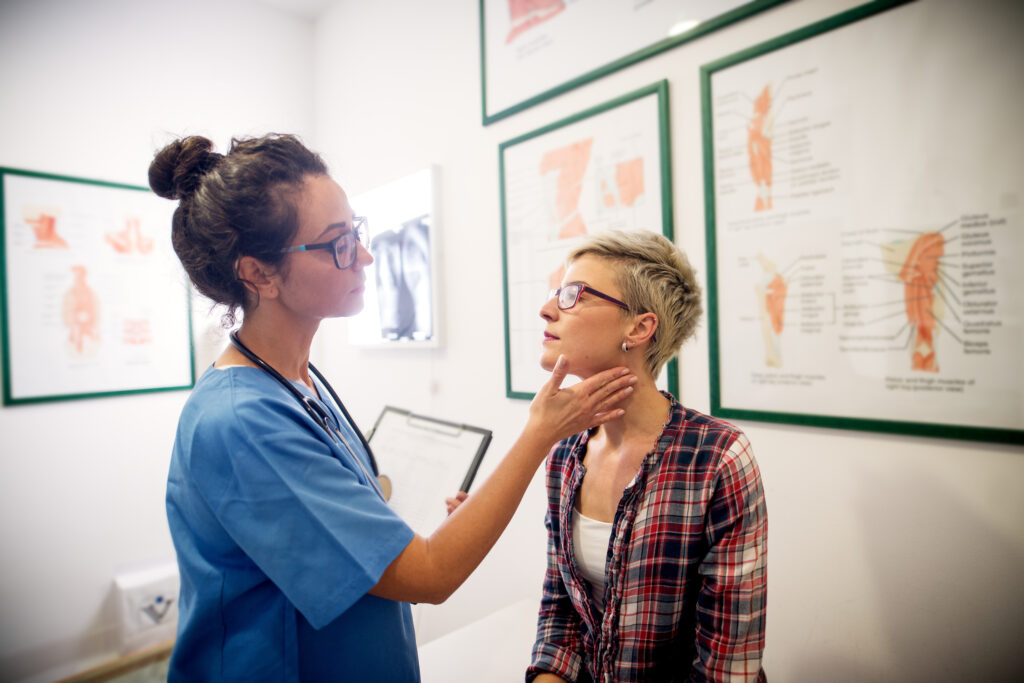Take small steps today for a healthier tomorrow.
Prioritizing preventive care is the first step to staying healthy. Our cultures and communities help shape our healthy habits, but it’s necessary to take care of yourself today to ensure a healthier, happier future for yourself and your loved ones.
What is preventive care?
Preventive care is routine care that can help identify potential health problems early—before symptoms start. Prevention goals may look different depending on someone’s unique culture, age, gender, family history and more.
In some ways, preventive care is like tending a garden: by giving your garden regular attention, you can stop small issues—like pests or overgrowth—from turning into bigger problems that are harder to fix. With regular check-ups, screenings and healthy habits, you’re nurturing your well-being before anything can take root.

What does preventive care include?1
- Annual check-ups and wellness visits
- Immunizations (e.g., flu shots, COVID-19 boosters)
- Screenings for conditions including diabetes, high blood pressure and certain cancers
- Recommendations on lifestyle choices, such as diet, mental health, exercise and tobacco cessation
What’s not included?1
Tests or treatments to address symptoms are not considered preventive care and are not included.
Your future needs you: The power of preventive care
Meet Maya and Victor—two parents juggling life’s challenges who finally chose to prioritize their health with preventive care. It was a decision that they and their loved ones would never regret.
What preventive care do you need?†
†Cigna Healthcare is not collecting or using the data entered. This is intended to help provide personalized recommendations.

Is preventive care free?1
Most health plans are required by law to cover eligible preventive care services at 100%. This includes health insurance you get through your employer or buy on your own through the Health Insurance Marketplace. Your doctor must also be in-network for your preventive care services to be covered at 100%.
What is diagnostic care?
Diagnostic care refers to services that help your doctor investigate specific health concerns, often based on the results of a preventive screening or symptoms.1 For example, a radiologist might recommend a follow-up mammogram to explore an irregularity detected during a preventive or routine mammogram. Since this follow-up mammogram is diagnostic, it is not covered as preventive care.
Think of it like spotting wilting plants or a patch of weeds in your garden: diagnostic care helps find the problem so you can treat it and keep everything healthy and growing.
Types of diagnostic care:1
- Blood tests (e.g., follow-up for high cholesterol)
- Imaging tests (e.g., X-rays, CT scans)
- Biopsies to investigate unusual results


What is a wellness visit?
Regular wellness visits are the foundation of preventive care and health maintenance. They help you stay ahead of potential health concerns and make it easier to build a plan with your doctor.
How often should you go?
- Once a year for most adults and children over three2
- More often if your doctor recommends it
Who will provide your wellness visit?
Generally, you should schedule an appointment to be seen by an in-network primary care doctor. Finding a doctor you trust can make a big difference. If you don’t have a primary care doctor or need help finding one, visit myCigna.com to search for a provider by location, gender, language preference and more.
You can also contact Cigna Healthcare® customer service to help you find the right doctor. Check your Cigna Healthcare ID for the customer service telephone number.

Prepare for your wellness visit.
Before your visit, be sure to
- write down questions, health concerns or any changes in your health; and
- take a list of your current medications (prescription and over-the-counter) or bring your medication bottles with you.3
During your visit, the doctor will
- review your health history, family health history and any concerns you may have;
- suggest screenings tailored to your age, sex assigned at birth, gender identity and risk factors; and
- provide immunizations to help keep you protected.3
Want to get the most out of your time with your doctor? Here’s a checklist to stay organized and help you ask the right questions during your visit.
After your visit, remember to
- follow the doctor’s recommendations;
- monitor and track your symptoms;
- fill and take prescription medications as indicated; and
- schedule follow-up appointments.3
Resources and tools
Ready to make the next step in your health journey? Your future needs you, and a healthier tomorrow starts with the actions you take now. Explore these tools to maintain your health, prevent illness and lower health care costs.
Use personalized tools
Access health information anytime, anywhere.
Download the myCigna App:

This information is for educational purposes only. It is not medical advice. Always consult your doctor for appropriate examinations, treatment, testing and care recommendations. Any third-party content is the responsibility of such third party. Cigna Healthcare® does not endorse or guarantee the accuracy of any third-party content and is not responsible for such content. Your access to and use of this content is at your sole risk.
Cigna Healthcare products and services are provided exclusively by or through operating subsidiaries of The Cigna Group.
- Cigna Healthcare. “What is Preventive Care?” Knowledge Center. n.d. https://www.cigna.com/knowledge-center/preventive-care
- Stanford Medicine Children’s Health. “Make Time for Well-Child Visits.” n.d. https://www.stanfordchildrens.org/en/topic/default?id=make-time-for-well-child-visits-197-29398
- WebMD. “Annual Physical Examinations.” May 31, 2024. https://www.webmd.com/a-to-z-guides/annual-physical-examinations
- This tool is a general guide of preventive care services. Always discuss your particular preventive care needs with your doctor. Some preventive services may not be covered under your plan.
This information is for educational purposes only. It is not medical advice. Always consult your doctor for appropriate examinations, treatment, testing and care recommendations. Any third-party content is the responsibility of such third party. Cigna Healthcare does not endorse or guarantee the accuracy of any third-party content and is not responsible for such content. Your access to and use of this content is at your sole risk.
These preventive health services are based on recommendations from the U.S. Preventive Services Task Force (A and B recommendations), the Advisory Committee on Immunization Practices (ACIP) for immunizations, the American Academy of Pediatrics’ Periodicity Schedule of the Bright Futures Recommendations for Pediatric Preventive Health Care, the Uniform Panel of the Secretary’s Advisory Committee on Heritable Disorders in Newborns and Children and, with respect to women, evidence-informed preventive care and screening guidelines supported by the Health Resources and Services Administration. For additional information on immunizations, visit the immunization schedule section of www.cdc.gov. This document is a general guide. Always discuss your particular preventive care needs with your doctor.
Some plans choose to supplement the preventive care services listed above with a few additional services, such as other common laboratory panel tests. When delivered during a preventive care visit, these services also may be covered at the preventive level.